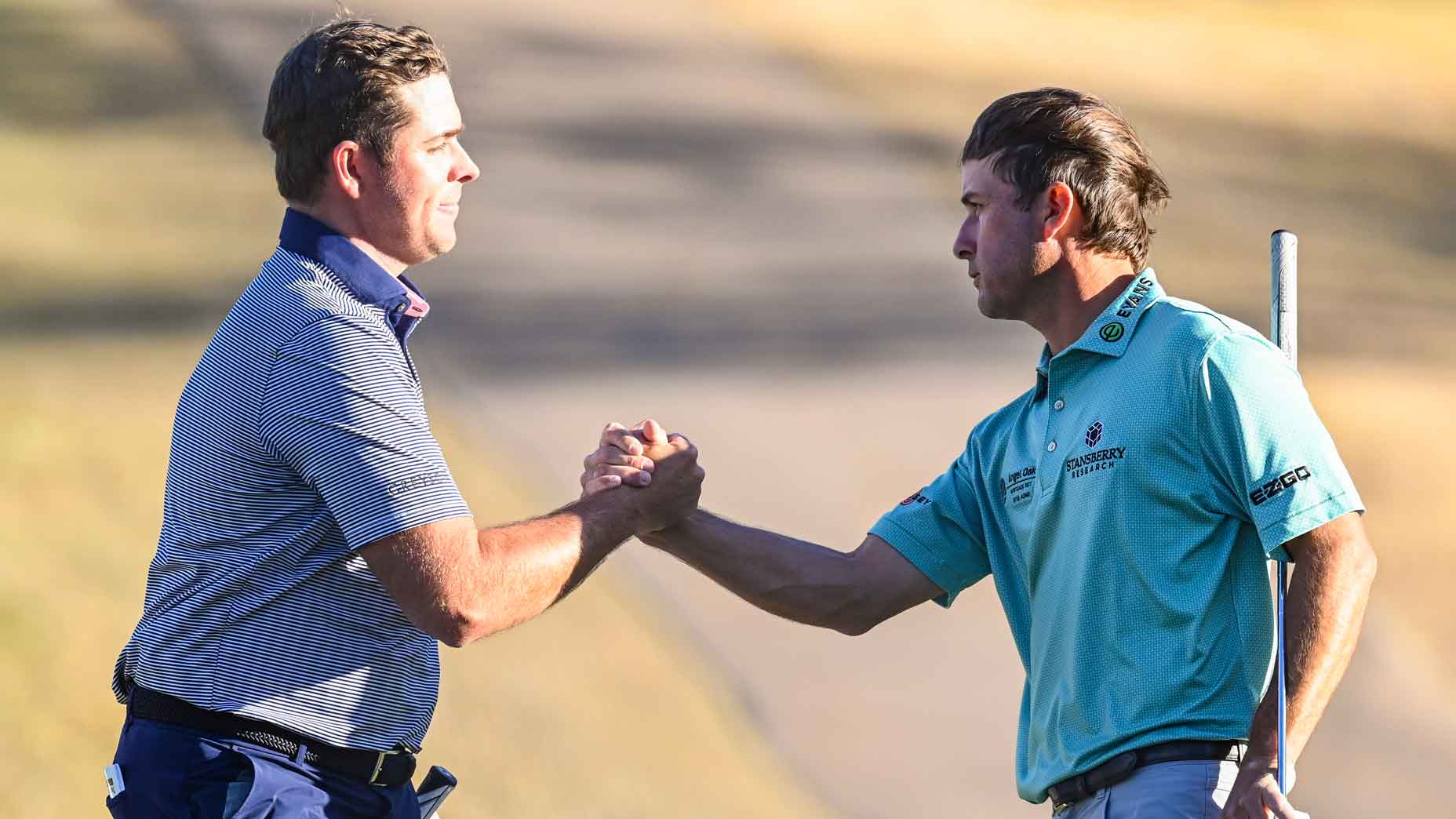If your opponent talks, you are quiet. If your opponent is quiet, you talk.
It’s match play week on the PGA Tour, and the differences are more subtle than the change in scoring from traditional stroke play. Yes, you’re still playing a golf course. But it’s a game of one-on-one, too.
Few know match play better than John Wood. He’s caddied in the finals of the WGC-Match Play with three players. He’s an on-course mic for NBC’s coverage this week. And earlier this week on Twitter, Wood dished on tips to outsmart a match-play opponent, and none of the insights is a cliche. Though they are geared more toward a caddie, the tips are genuine ways to psych someone out.
Like knowing whether someone is a talker or not.
With that, here’s Woody. (And do yourself a favor and give him a follow on Twitter.)
1. ‘Stay in the hole’
“Stay in the hole,” Wood wrote. “Make your opponent hit as many shots under pressure as possible. If you’re in trouble, get the ball back in play hopefully past where his ball is so he has to hit the next shot not knowing what you’re going to make. You never know when an opponent may be teetering on the brink of breaking down. Hero shots are a last result.”
2. ‘Know your opponent’s game or stats’
“Know your opponent’s game or stats,” Wood wrote. “No need to inform your player, but they are helpful in making the right decisions. Left-right tendency off tee; three-putt avoidance; 3- to 6-feet putting percentage; strokes gained/lost around green; fourth-round putting stats.”
3. Start one way, then go the other
“Don’t be afraid to pretend you’re going to hit one shot but really are going to do something else, just to make them think,” Wood wrote.
4. ‘Switch places with your opponent’
“When in a situation where you don’t know what to do, switch places with your opponent and think, “What does he hope I do?”, then do the opposite,” Wood wrote.
5. ‘Flash the wrong club’
“If you think your opponent or his caddie are relying too much on what you’re hitting, if they always have their eyes on you, flash the wrong club to the TV spotter,” Wood wrote. “That’s on them, not you.”
6. ‘No need to be overly friendly’
“No need to be confrontational, but no need to be overly friendly either,” Wood wrote. “If your opponent likes to talk, freeze him out for the first few holes. If he likes to be quiet, engage him in conversation. It’s not your responsibility to make him comfortable.”
7. ‘Drag your opponent kicking and screaming to every extra tee’
“When you are multiple holes down on the back nine, do everything in your power to drag your opponent kicking and screaming to every extra tee you can get him,” Wood wrote. “You may be four down with four to play, but if you can get him to the last two, WORRY will sink in. Like earlier, you never know when you will catch fire or your opponent will break down.”
8. ‘It’s not your responsibility to help them’
“Tell your player quietly not to listen to what you’re about to say,” Wood wrote. “Then tell him, just loud enough for the opponent or his caddie to hear: ‘This shot always plays really long,” even when it doesn’t. Again, it’s not your responsibility to help them. If they are depending too much on your opinion, it’s OK to fudge it a little. He should be believing in what he thinks, not what he overhears you say.”
